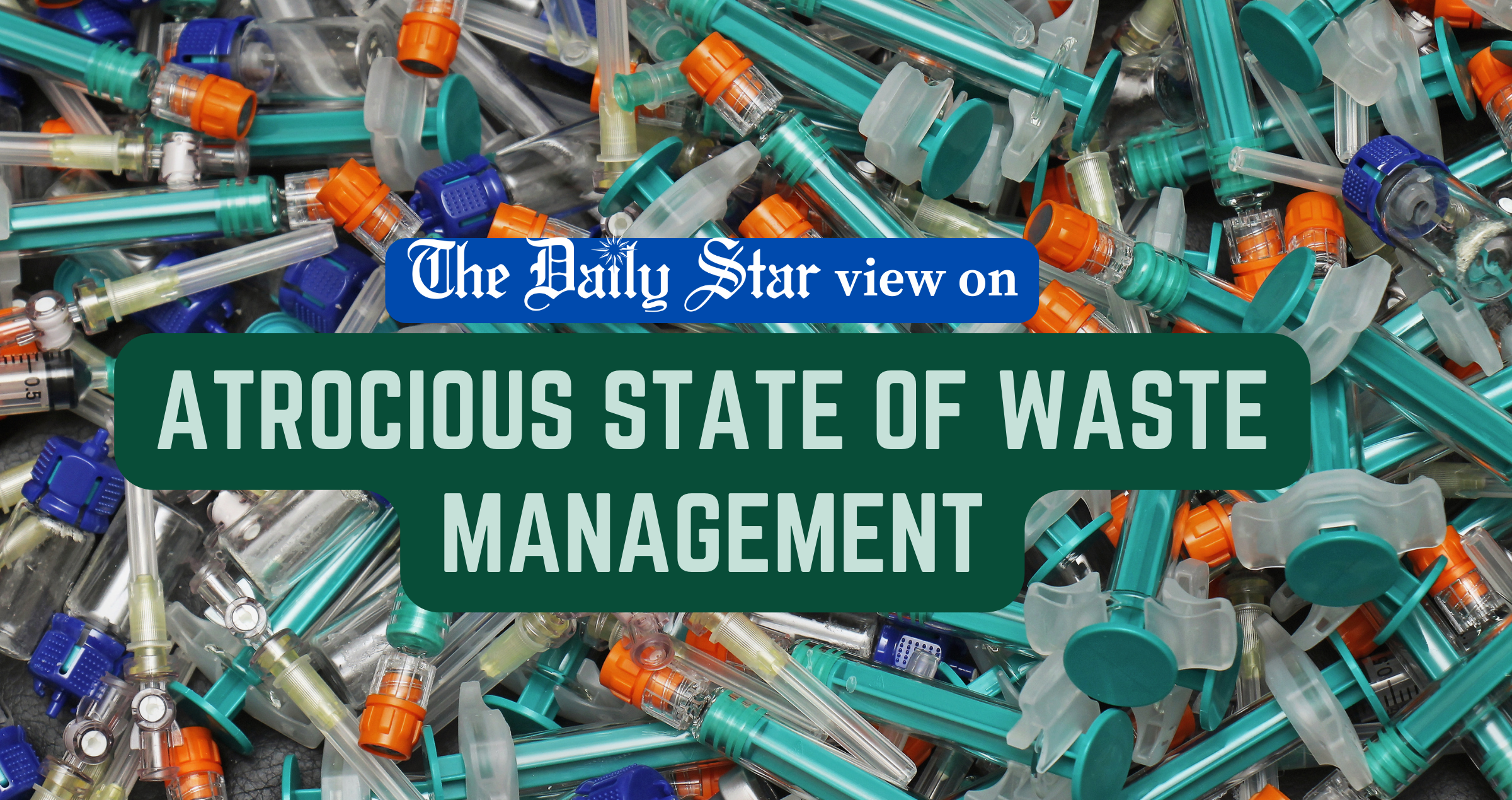Hospitals need proper waste disposal

We are concerned about the medical waste problem at Rangpur Medical College Hospital where hazardous waste has been piling up inside the premises, posing health risks to both patients and visitors. According to a report by this daily, the planned construction of a waste management plant at the hospital has remained suspended for over five months due to protests from locals.
Locals are apparently worried that the plant's location, near the district's Bangladesh Medical Association building and adjacent residential areas, would cause odour pollution and pose health risks. They also allege that the plant does not have a location clearance certificate from the Department of Environment. Meanwhile, approximately 1.5 tonnes of waste, including 300 kilogrammes of hazardous waste generated daily by the hospital, are not being disposed of properly, which can have serious consequences.
Unfortunately, the situation at Rangpur Medical College Hospital is not an isolated one. Around 83 percent of hospitals in our country do not have a waste management system, according to a 2022 study by the Transparency International Bangladesh (TIB). The study also found that around 60 percent of hospitals do not have bins to store medical waste, let alone ensure basic segregation among reusable, recyclable, and non-recyclable waste—with hazardous medical waste being mixed with solid garbage in the bins that are available. In fact, at the Rangpur hospital, such waste is currently being dumped out in the open. Do the locals opposing the waste management plant not see the health risks of this uncontrolled dumping? A properly constructed waste management plant cannot pose more risks than the current situation.
Under these circumstances, hospital authorities must engage with locals, raise awareness with the help of experts if necessary, and ensure the plant's construction follows all due process. Meanwhile, all public hospitals in the country must take urgent action in line with the recommendations that came up in the TIB study. Simultaneously, the government must enforce the Medical Waste Management and Processing Rules 2008, penalising any non-compliance. The authorities also must ensure proper hygiene and cleanliness in public hospitals so that people do not fall sicker while undergoing treatment because of hospital-acquired infections.



 For all latest news, follow The Daily Star's Google News channel.
For all latest news, follow The Daily Star's Google News channel. 

Comments